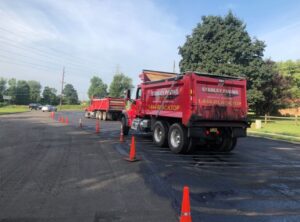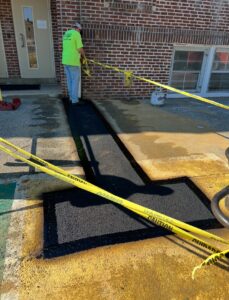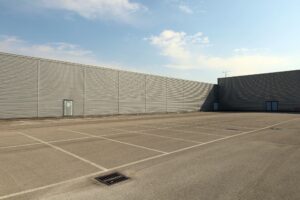
5 Warning Signs Your Asphalt Is Failing—and What to Do About It
Asphalt does not fail overnight. It gives warnings first. The problem is most property owners miss those signs until repairs

Asphalt does not fail overnight. It gives warnings first. The problem is most property owners miss those signs until repairs

Smart Paving Starts with Smart Timing If you’re a property manager, business owner, or facilities supervisor in New Jersey or

Understanding the Need for Private Road Paving Private roads—whether winding through a rural estate, leading into a suburban HOA neighborhood,

Asphalt milling has become one of the most efficient, cost-effective, and sustainable methods for restoring paved surfaces. Whether you’re managing

Cracked driveways. Pothole-ridden parking lots. Faded striping and drainage issues that turn your lot into a pond after every storm.

Maintaining safe, accessible, and legally compliant parking lots isn’t just good business—it’s required by law. Whether you’re a property manager,

Why Preventive Care Saves You Money and Protects Your Pavement Whether you’re managing a commercial parking lot or a municipal

If you manage a commercial property, retail center, or industrial site, your parking lot isn’t just a surface—it’s part of

Hiring an asphalt contractor isn’t a decision to take lightly—especially if you’re a property owner, facility manager, or developer overseeing

In New Jersey and Pennsylvania, roads stretch like veins across each corner of the state, connecting lives, communities, and economies.

Just like that one time you tried to DIY your home plumbing and ended up turning your living room into

Have you ever wondered about the environmental impact of the asphalt paving and sealcoating that we see around us every

At Stanley Paving, we’ve been proudly serving Northeast Philadelphia and New Jersey with top-notch asphalt paving services since 1953. Over

As a commercial property owner, you know how important it is to maintain the appearance and condition of your building’s

A freshly paved parking lot can be a silent salesman for any business. Parking lot paving creates the first impression
Request your estimate today and discover why Stanley Paving has “Topped ‘Em All” since 1953.
Submit the form below and one of our estimators will get back to you shortly.